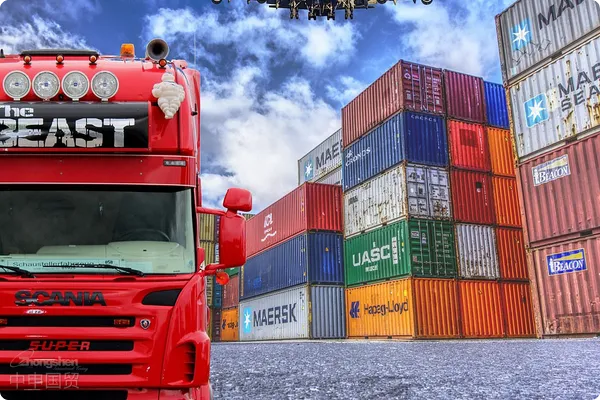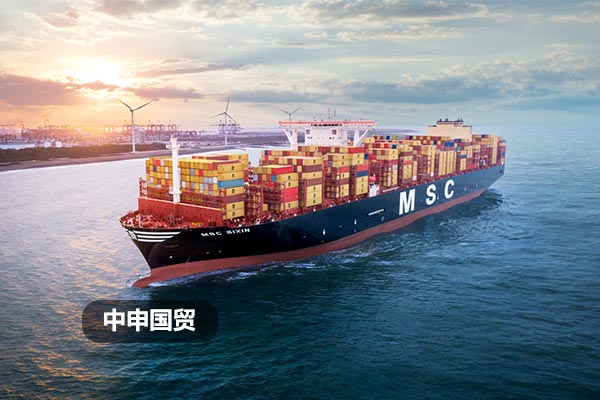- Shanghai Zhongshen International Trade Co., Ltd. - Two decades of trade agency expertise.
- Service Hotline: 139 1787 2118

1. Agency export and agencyA complete export agency agreement should be attached with:Is it the same concept?
This is the most common cognitive bias.Foreign Trade Agency AgreementRefers to professionalforeign tradeThe company assists production enterprises in completing the entire export process, including customs clearance, logistics, and document preparation, while...Collection on behalfSpecifically refers to the process where institutions with foreign exchange qualifications act as intermediaries to receive overseas payments. In practice, professional foreign trade companies often provide both services simultaneously. However, according to the latest 2025 Foreign Exchange Management Regulations, the agent handling foreign exchange receipts must be registered in the "List of Enterprises for Trade-Related Foreign Exchange Receipts and Payments."
2. Under what circumstances is it mandatory to use an agency collection service?
- The production enterprise does not haveimport and exportFor the time being: The transaction must be completed through an agency company.FX Settlement Agency
- Under special trade modesFor example, market procurement trade (code 1039) must be conducted through designated venues for foreign exchange collection.
- Foreign exchange control countries during transactions: Payments for sanctioned countries such as Iran and Venezuela must be processed through designated proxy channels.
3. How is the safety of funds for entrusted foreign exchange collection ensured?
A legitimate agency company must provideTriple safeguard mechanism:
- Sign a tripartite agreement to clarify the ownership of funds.
- Establish a co-managed account supervised by the China Banking and Insurance Regulatory Commission.
- Provide real-time traceable cross-border fund transfer records.
The case of a certain electromechanical enterprise having $2 million frozen in 2024 due to using an unregistered agent for foreign exchange collection fully demonstrates the importance of qualification review.
IV. How should the agency service fee be calculated reasonably?
Industry standard fees consist of two parts:
- Basic service fee: Charged at 0.8%-1.5% of the cargo value (including customs clearance, logistics, and documentation).
- Additional Collection Fee: A fee of 0.3%-0.8% of the foreign exchange amount will be charged.
Be particularly wary of service providers with a total fee rate below 0.5%, as they may pose risks of fraudulent invoicing or money laundering.
V. Will agency export have an impactExport DrawbackAccording to Document No. 38 of the State Administration of Foreign Exchange in 2025,
Standardized agency operationsIt will not affect the right to tax refund., but three key points must be noted:
- The customs declaration form must indicate the trade method of "agency export."
- The special VAT invoice is issued to the actual production enterprise.
- Collection Receipt andExport ClearanceThe amount on the invoice must match.
The 2025 new version of the electronic tax bureau system has achieved automatic comparison of export tax rebate data for agents, reducing the review cycle to 15 working days.
6. How to Verify the Compliance of an Agency Company?
It is recommended toFour-Step Verification Method:
- Verify the original copy of the "Foreign Trade Operator Registration Form."
- Verify the classification level with the State Administration of Foreign Exchange (priority given to Class A enterprises).
- Review the customs credit rating (General Certification or above) for the past three years.
- Please provide proof of bank credit line (recommended to be no less than RMB 50 million).
Automobile ExportCross-border E-commerceIs it suitable to use an agent for receiving payments?
According to the new cross-border e-commerce regulations for 2025,The following three scenarios are recommended for adopting agency foreign exchange collection.:
- When the platform's monthly sales exceed $50,000,
- When involving multi-store fund pooling,
- When using the overseas warehouse model, domestic foreign exchange settlement is required.
A leading cross-border e-commerce seller achieved a 40% increase in capital turnover rate through agent-based foreign exchange collection, demonstrating the feasibility of this model.
8. What are the tax risks associated with acting as a foreign exchange collection agent?
There are two major risk points:
- Risk of time difference in foreign exchange receipts and payments: Foreign exchange receipts and goods exports exceeding 90 days require an extension declaration.
- Exchange rate fluctuation risk: It is recommended to sign a hedging agreement (such as the popular NDF forward contract in 2025).
9. Is the agent responsible in case of trade disputes?
According to Article 926 of the Civil Code, the agent shall onlyThree scenariosJoint and several liability:
- Knowing that the entrusted matter is illegal but still acting as an agent.
- The transaction terms were altered without authorization and have not been ratified.
- Failure to fulfill necessary review obligations resulting in losses
10. How to Choose a Reliable Proxy Service Provider?
It is recommended to establishFive-dimensional evaluation system:
- Industry experience (it is recommended to choose companies established for more than 8 years)
- Risk control system (must include anti-money laundering monitoring system)
- Level of informatization (whether API data integration capability is available)
- Service network (customs clearance capability covering target markets overseas)
- Financial strength (registered capital not less than RMB 10 million)
Related Recommendations
? 2025. All Rights Reserved. Shanghai ICP No. 2023007705-2  PSB Record: Shanghai No.31011502009912
PSB Record: Shanghai No.31011502009912










